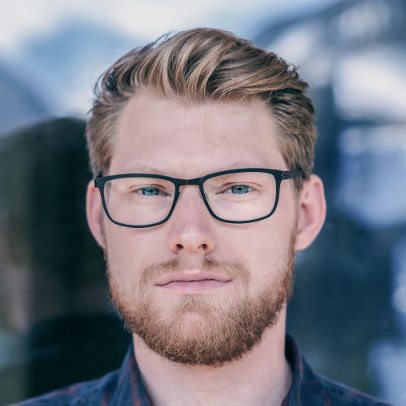About
I am a research scientist at DeepMind, based in London. My research interests are: information-optimal hierarchical models (coupling perception with action), Bayesian deep learning, neural network compression, bounded rational decision-making (optimal decision-making under limited computational capacity) and information-theoretic methods in inference and decision-making.
Biological Cybernetics / Intelligent Systems
My PhD years were well spent at the Max-Planck Institute for Intelligent Systems and the Max-Planck Institute for Biological Cybernetics in Tübingen, Germany, where I was part of the Sensorimotor Learning and Decision-Making research group, headed by Daniel A. Braun. Our group was interested in connecting sensorimotor learning with theoretical models for decision-making. My research has been focused on understanding how decision-makers can leverage the statistical structure of their environment in order to efficiently cope with uncertainty. In my PhD, I was working on theoretical models of structure learning but I also investigated structure learning and structure selection mechanisms in humans through virtual reality experiments. Detailed information about my research is here.
Telematics
Before moving to Tübingen, I received my bachelor’s and master’s degrees in Telematics at Graz University of Technology. In my master’s programme I chose to specialize on computational intelligence and autonomous robots and did my master’s thesis on structure learning for robotic motor control under the supervision of Wolfgang Maass, co-supervised by Gerhard Neumann and Elmar Rückert. During my time in Graz I was also working as a part-time software-developer at IVM Engineering and NTE Systems, mostly on embedded systems and on backends that connect to embedded systems (C/C++, C#, .NET (WCF, WPF) and also .NET Micro Framework)
Affiliations
- 10/2018 - present Research Scientist at DeepMind
- 02/2017 - 09/2018 Research Scientist at Deep Learning Perception group, Bosch Center for Artificial Intelligence (established in 02/2017), Renningen, Germany.
- 07/2016 - 01/2017 Researcher at Cognitive Systems group, Bosch Corporate Research, Renningen, Germany.
- 01/2012 - 06/2016 PhD candidate, Max-Planck Institute for Intelligent Systems, Tübingen
Education
- 2012 - 2017: PhD student (computational neuroscience), Max-Planck Institute for Intelligent Systems, Tübingen
- Topic: Structure Learning with Hierarchical Models for Computational Motor Control [download]
- 2009 - 2012: MSc Telematics, Graz University of Technology
- Focus on: computational intelligence, autonomous robots
- MSc thesis: Structure learning for robotic motor control [download]
- 2006 - 2009: BSc Telematics, Graz University of Technology
- BSc thesis: evaluation of aspect-oriented programming in a commercial software project [download(German)]
Experience
- 11/2009 - 03/2011 (part-time): Software developer at NTE Systems, Graz
- 08/2008 - 10/2009 (part-time): Junior consultant software engineering at IVM Engineering, Graz
- BSc thesis: evaluation of aspect-oriented programming in a commercial software project (.NET C#) [download(German)]
- Backend wrapper for CAN bus communication module (.NET C#, C++)
Interests
Professionally, I am interested in quantifying and dealing with uncertainty - I find it particularly interesting how well humans and animals are able to learn about and exploit the rich stochastic structure of their environments. Compared to artificial systems, humans are remarkably good at dealing with structured uncertainty, for instance when adapting to novel but related tasks or transferring knowledge between domains. The prime example for dealing with structured uncertainty is perhaps sensorimotor control - a field where current state-of-the-art artificial systems still lack significantly behind.
I am a fan of the idea of lowering the barrier to make research practically reproducible. Simulation results and data analysis with complex models are often subject to many minor technical details that are omitted from a publication because they are not essential for understanding the results. In many cases these details are crucial for (re)producing the results within reasonable time and effort. I find that Jupyter notebooks provide an excellent way of sharing results. They are also a great tool for communicating ideas and teaching. Additionally, I think that lightweight virtual machines, in particular Docker containers might be the way to go to make sure that published code is still executable years after publication (through creating independence of specific core-language and library versions) - definitely keep a look on the open container initiative.
I am also a big fan of Julia and very curious to spend more time on Edward.
Some things to get a casual conversation going:
In my spare-time I still like to tinker a bit with embedded systems and I’m fascinated by aesthetic or intriguing implementations of theoretical phenomena (e.g. kinetic sculptures, the wave pendulum or mechanical Fourier analyzers) - of course I had to buy (more than) one of these. I’m always curious about how to use machine learning and AI for good - I think that recently machine learning has become a tool to massively centralize wealth and power and I’d be interested in hearing about ideas on how to reverse or break that trend (education, open source/open access, ownership of the data produced by you, …?). I’m also into baking bread and got interested in fermentation in general thanks to Sandor Katz’ wonderful book The Art of Fermentation. If you’re looking for a superb cookbook that’s interesting to read even without cooking, go for Kenji Lopez-Alt’s The Food Lab.
Contact
Tim Genewein
Bosch Center for Artificial Intelligence
Robert-Bosch-Campus 1
71272 Renningen
Germany
Email
